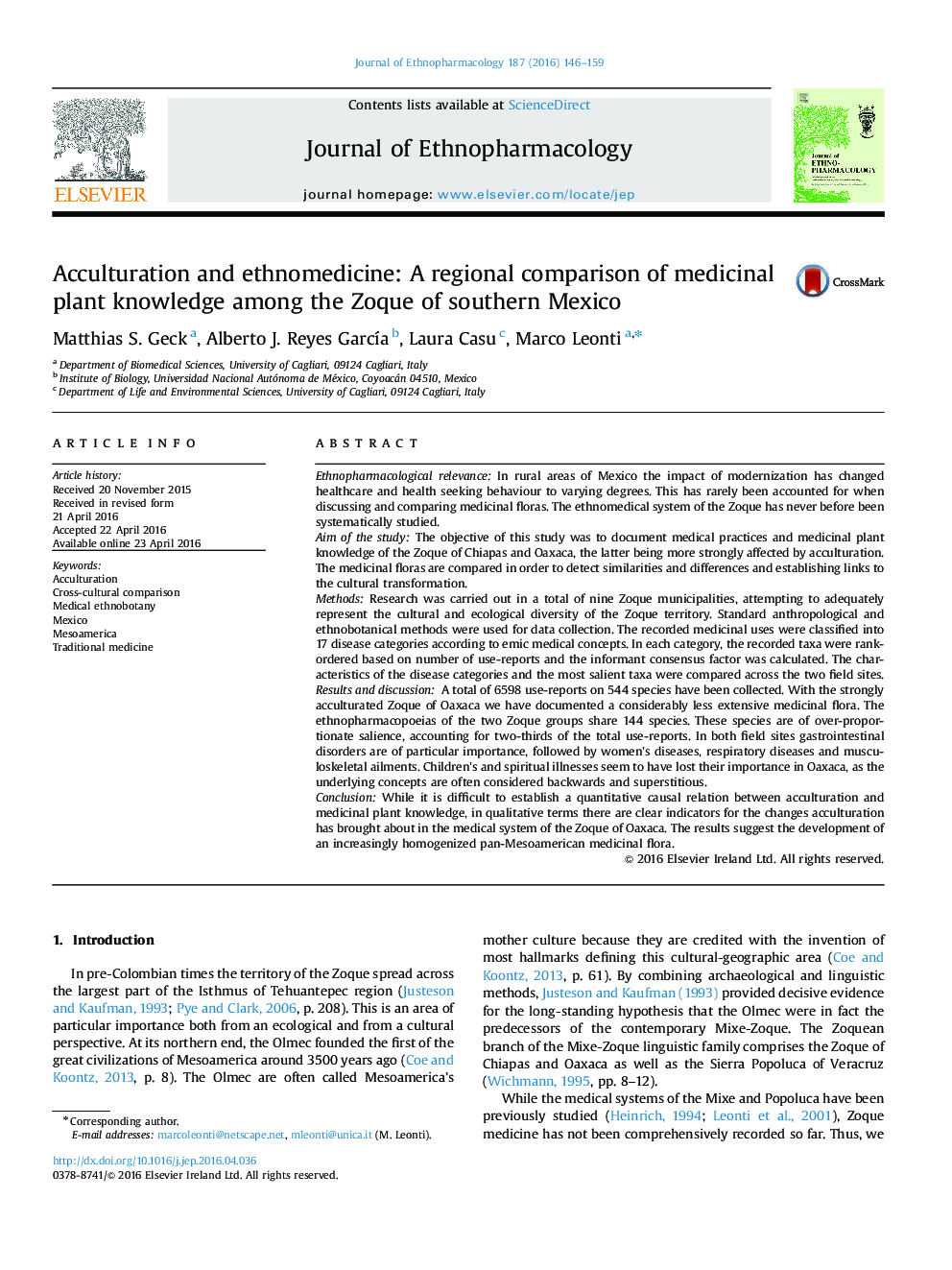| کد مقاله | کد نشریه | سال انتشار | مقاله انگلیسی | نسخه تمام متن |
|---|---|---|---|---|
| 2544685 | 1560375 | 2016 | 14 صفحه PDF | دانلود رایگان |

Ethnopharmacological relevanceIn rural areas of Mexico the impact of modernization has changed healthcare and health seeking behaviour to varying degrees. This has rarely been accounted for when discussing and comparing medicinal floras. The ethnomedical system of the Zoque has never before been systematically studied.Aim of the studyThe objective of this study was to document medical practices and medicinal plant knowledge of the Zoque of Chiapas and Oaxaca, the latter being more strongly affected by acculturation. The medicinal floras are compared in order to detect similarities and differences and establishing links to the cultural transformation.MethodsResearch was carried out in a total of nine Zoque municipalities, attempting to adequately represent the cultural and ecological diversity of the Zoque territory. Standard anthropological and ethnobotanical methods were used for data collection. The recorded medicinal uses were classified into 17 disease categories according to emic medical concepts. In each category, the recorded taxa were rank-ordered based on number of use-reports and the informant consensus factor was calculated. The characteristics of the disease categories and the most salient taxa were compared across the two field sites.Results and discussionA total of 6598 use-reports on 544 species have been collected. With the strongly acculturated Zoque of Oaxaca we have documented a considerably less extensive medicinal flora. The ethnopharmacopoeias of the two Zoque groups share 144 species. These species are of over-proportionate salience, accounting for two-thirds of the total use-reports. In both field sites gastrointestinal disorders are of particular importance, followed by women's diseases, respiratory diseases and musculoskeletal ailments. Children's and spiritual illnesses seem to have lost their importance in Oaxaca, as the underlying concepts are often considered backwards and superstitious.ConclusionWhile it is difficult to establish a quantitative causal relation between acculturation and medicinal plant knowledge, in qualitative terms there are clear indicators for the changes acculturation has brought about in the medical system of the Zoque of Oaxaca. The results suggest the development of an increasingly homogenized pan-Mesoamerican medicinal flora.
Figure optionsDownload high-quality image (329 K)Download as PowerPoint slide
Journal: Journal of Ethnopharmacology - Volume 187, 1 July 2016, Pages 146–159